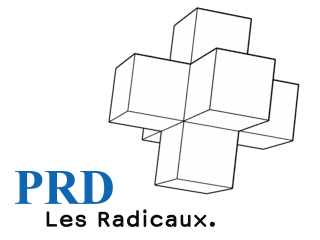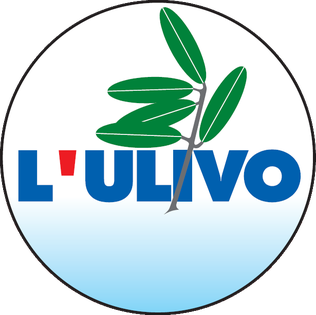Alliance of the Centre may refer to:
- Alliance of the Centre (Italy), Italian political party founded in 2008
- Alliance of the Centre (Switzerland), Swiss political party founded in 2021
Alliance of the Centre may refer to:

National Alliance was a conservative political party in Italy. It was the successor of the post-fascist Italian Social Movement (MSI), which had moderated its policies over its last decades and finally distanced itself from its former ideology during a convention in Fiuggi by dissolving into the new party in 1995.

The Alliance of Liberals and Democrats for Europe Party is a European political party composed of 60 national-level liberal parties from across Europe, mainly active in the European Union. The ALDE Party is affiliated with the Liberal International and a recognised European political party, incorporated as a non-profit association under Belgian law.

Euroscepticism, also known as EU-scepticism, means criticism of the European Union (EU) and European integration. It ranges from those who oppose some EU institutions and policies and seek reform, to those who oppose EU membership outright and see the EU as unreformable. The opposite of Euroscepticism is known as pro-Europeanism, or European Unionism.

The Green Party of Switzerland is the fourth-largest party in the National Council of Switzerland and the largest party that is not represented on the Federal Council.

The Christian Democratic People's Party of Switzerland was a Christian-democratic political party in Switzerland. On January 1, 2021, the party merged with the Conservative Democratic Party of Switzerland (BDP) to form The Centre, which will operate at the federal level. The party will continue to exist at the cantonal level as individual local and regional parties determine their status.

The Free Democratic Party or Radical Democratic Party was a liberal political party in Switzerland. Formerly one of the major parties in Switzerland, on 1 January 2009 it merged with the Liberal Party of Switzerland to form FDP.The Liberals.

The Ticino League is a regionalist, national-conservative political party in Switzerland active in the canton of Ticino.
CDU may refer to:

The Olive Tree was a denomination used for several successive centre-left political and electoral alliances of Italian political parties from 1995 to 2007.

The Italian Democratic Socialists were a social-democratic political party in Italy. The party was the direct continuation of the Italian Socialists, the legal successor of the historical Italian Socialist Party. Also the Italian Democratic Socialist Party, the other long-time Italian social-democratic party, was merged into it.
This article gives information on liberalism worldwide. It is an overview of parties that adhere to some form of liberalism and is therefore a list of liberal parties around the world.

The political groups of the European Parliament are the parliamentary groups of the European Parliament. The European Parliament is unique among supranational assemblies in that its members (MEPs) organise themselves into ideological groups as in traditional national legislatures. The members of other supranational assemblies form national groups. The political groups of the European Parliament are usually the formal representation of a European political party in the Parliament. In other cases, they are political coalitions of a number of European parties, national parties, and independent politicians.

National-level elections in Italy are called periodically to form a parliament consisting of two houses: the Chamber of Deputies with 630 members; and the Senate of the Republic with 315 elected members, plus a few appointed senators for life. Italy is a parliamentary republic: the President of the Republic is elected for a seven-year term by the two houses of Parliament in joint session, together with special electors appointed by the Regional Councils.
The Left may refer to :
National Union may refer to:
Right-wing populism, also called national populism and right-wing nationalism, is a political ideology which combines right-wing politics and populist rhetoric and themes. The rhetoric often consists of anti-elitist and anti-intellectual sentiments, opposition to the Establishment, and speaking to the "common people". Both right-wing populism and left-wing populism object to the perceived control of liberal democracies by elites; however, populism of the left also objects to the power of large corporations and their allies, while populism of the right normally supports strong controls on immigration. As seen in politicians like Josh Hawley (R-MO) and former President Trump, right-wing populists increasingly oppose large corporations and big business.

The Pact for Italy was a centrist political and electoral alliance in Italy launched by Mario Segni and Mino Martinazzoli in 1994.
A political alliance, also known as a coalition or bloc, is cooperation by members of different political parties, in countries with a parliamentary system, on a common agenda of some kind. This usually involves formal agreements between two or more entire parties. An alliance is usually especially beneficial to the parties concerned during and immediately after elections – due to characteristics of the electoral systems concerned and/or allowing parties to participate in formation of a government after elections. These may break up quickly, or hold together for decades becoming the de facto norm, operating almost as a single unit. Alliances may also form prior to elections in an effort to reduce uncertainty following the election.
The centre-left coalition is a political alliance of political parties in Italy active, under several forms and names, since 1995 when The Olive Tree was formed under the leadership of Romano Prodi. The centre-left coalition ruled the country for more than thirteen years between 1996 and 2021.